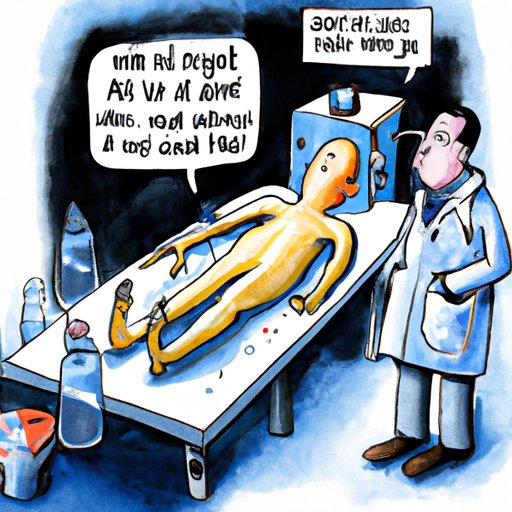Introduction
Donating your body to science is an act of generosity that has a lasting impact on medical research and education. Also known as “body donation” or “leaving your body to science,” this process involves giving your body to an anatomical program or research institution after you pass away. In return, the organization may cover funeral expenses and provide a memorial service in recognition of your donation.
The benefits of donating your body to science are numerous. According to a 2017 study published by the Journal of Medical Ethics, body donations help advance medical knowledge, train future healthcare professionals, and improve patient care. In addition, donations can provide closure for grieving families, who can take comfort knowing that their loved one’s remains are helping to shape the future of medicine.
Process of Donating Your Body to Science
Before donating your body to science, it is important to make sure the organization you choose is accredited and reputable. Not all organizations accept body donations, so it is important to do your research. Generally speaking, any accredited university, medical school, or teaching hospital that offers anatomy courses may be willing to accept body donations.
Requirements for donating a body to science vary from state to state. Most programs require that donors be at least 18 years old and in good health. Some also require that donors sign up in advance, while others accept donations without prior registration. It is important to check with the program you are interested in before donating your body.
Possible uses for donated bodies include medical research, anatomy classes, and surgical training. According to a 2019 review published in the journal Anatomical Sciences Education, donated bodies are most often used in anatomy courses, where they are used to teach students about the structure and function of the human body. They may also be used for medical research projects or for surgical training.

What Happens After Donating Your Body to Science
After donating your body to science, the organization will handle the disposal of the remains. Depending on the program, the body may be cremated and returned to the family, buried in a donated plot, or kept on-site for research purposes. The organization should provide information about what happens to the remains after donation.
Most programs also offer follow-up care and contact with family members. This may include sending updates on how the body is being used or offering counseling services to those who have donated a loved one’s body. It is important to ask the organization about its policies regarding follow-up care.
Conclusion
Donating your body to science is a generous act that can have a lasting impact on medical research and education. By donating your body, you can help shape the future of medicine and provide closure for grieving family members. Requirements for donation vary from state to state, but generally speaking, any accredited university, medical school, or teaching hospital may be willing to accept body donations. After donating your body, the organization will handle the disposal of the remains, and may offer follow-up care and contact with family members. If you are considering donating your body to science, be sure to do your research and check with the program you are interested in.
(Note: Is this article not meeting your expectations? Do you have knowledge or insights to share? Unlock new opportunities and expand your reach by joining our authors team. Click Registration to join us and share your expertise with our readers.)
